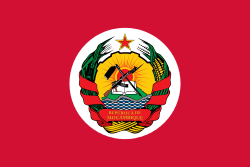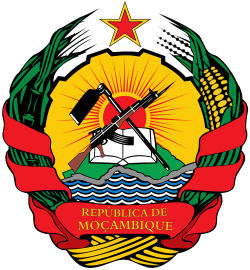| President of the Republic of Mozambique | |
|---|---|
 | |
| Type | |
| Residence | Palácio da Ponta Vermelha, Maputo |
| Term length | Five years, renewable once |
| Constituting instrument | Constitution of Mozambique (2004) |
| Inaugural holder | Samora Machel |
| Formation | 25 June 1975 |
| Succession | President of the Assembly of the Republic [1] |
| Salary | 46,800 USD annually [2] |
This article lists the presidents of Mozambique , since the establishment of the office of president in 1975.
Contents
- Term limits
- Presidents of Mozambique (1975–present)
- Timeline
- Latest election
- See also
- Sources
- References
The current president is Daniel Chapo. Chapo was inaugurated for his first term as the fifth president of Mozambique on 15 January 2025. [3]








